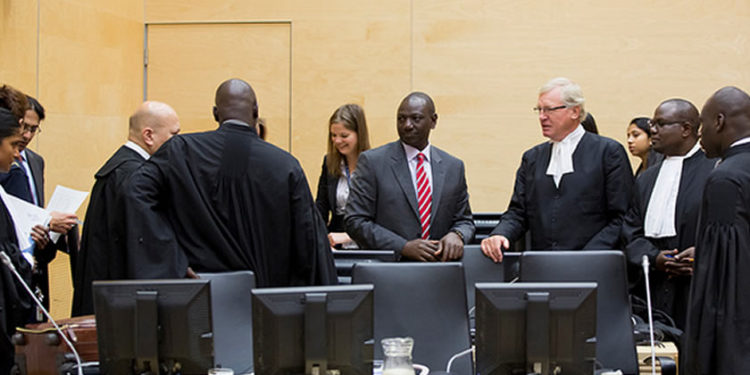Kenya and South Africa are attempting to open debate on the use of prior recorded testimony, the duty to arrest and surrender a sitting Head of State. The states have written to The Secretariat of the Assembly of States Parties requesting the inclusion of supplementary agenda items on the Fourteenth meeting of the Assembly of States Parties to the Rome Statute for consideration by the Bureau. The meeting is scheduled to begin 18-26 November 2015 at The Hague, Netherlands. Ambassador Macharia Kamau, the Kenya’s Permanent Representative to the United Nations says ‘the amended Rule 68 is being interpreted and implemented in a manner that is inconsistent to the rights of the accused’. “From the foregoing and owing to the gravity of the issue (s) in question for Kenya, Kenya requires that this matter be included on the formal agenda of the forthcoming meeting of the Assembly, in order to afford its members, in the exercise of their legislative oversight role, an opportunity to reaffirm and clarify their understanding of the agreement (s) and aforementioned resolution.” According to the Government of Kenya, the initially rule 68 required that for prior recorded testimony to be introduced in lieu of oral evidence, both the prosecutor and defense ‘should have an opportunity to cross examine or question the maker’. “This requirement for cross examination was removed in the amendment that was opposed by Kenya and other African Countries.” Macharia states that Kenya was given assurance that, “The amended rule would not be applied to ongoing cases; and that in any case, the amendment coming during the currency of the Kenyan trials, would not apply retroactively to the detriment of an accused person.” The Trial Chamber V (A) by majority, the judges granted the Prosecution’s Request to use into evidence the prior recorded testimony of five witness statements in the Mr. William Ruto and Journalist Joshua Sang cases.
- Kenya’s request for inscribing of a supplementary agenda on the application of Rule 68 of the Rules of Procedure and Evidence as Amended during the 12th ASP
- It is regrettable and improper to allow prior recorded testimony, Kenya to ASP President
The ICC Appeals Chamber has allowed the African Union Commission to submit written observations by 19 October 2015 as amicus curiae in the appeals against the “Decision on Prosecution Request for Admission of Prior Recorded Testimony” in the two cases.
Further, Kenyan legislators have signed a petition to the United Nations Security Council and to the ASP seeking the appointment of an independent mechanism to audit the Prosecutor’s witness identification and recruitment process in the case. The petition also calls for the suspension of the two cases until the audit is determined and calls for the support of the UN.
Subsequently, South Africa, through its Embassy to the Kingdom of Netherlands proposal is on the application and implementation of Article 97 and Article 98 of the Rome Statute.
Their proposed decision is:
“That clear rules and procedures be developed on the application of Art 97 requests by States Parties to the Court for consultations to resolve problems that they may experience which may impede or prevent the execution of cooperation requests by the court and that an interpretation be done if the nature and scope of Article 98 and its relationship with Article 27.”
This is in relation to its failure to abide by its obligation to cooperate with the court in the arrest and surrender of President Al Bashir during the June African Union Summit of Heads of State and Government held in Johannesburg.
Read:
- Request by the Republic of South Africa for inclusion of a supplementary item on the agenda of the 14th meeting off the Assembly of States Parties to the Rome Statute
- Immunities in International Criminal Law. The Challenges from Africa By Sètondji Roland Adjovi
- Court order bars President Omar Al-Bashir from leaving South Africa
- South African Govt breached court order prohibiting Bashir from leaving its territory
- South Africa ordered to state why it should not be referred to ASP over the Bashir saga
- South African Govt denied leave to appeal Bashir ruling
- South Africa asks ICC for more time to explain why it did not arrest Bashir
The South African State in its requests notes that, “It is important for State Parties to discuss how Art 98 should be interpreted. The exception under Art 98 is based on the recognition that while Art 27 may imply a waiver of immunities between State parties, such a waiver would not apply to the relationship between States Parties and non-state parties like Sudan.”
Currently, the African National Congress (ANC) has announced that it would initiate the process of South Africa’s withdrawal from the Rome Statute of the International Criminal Court (ICC).







